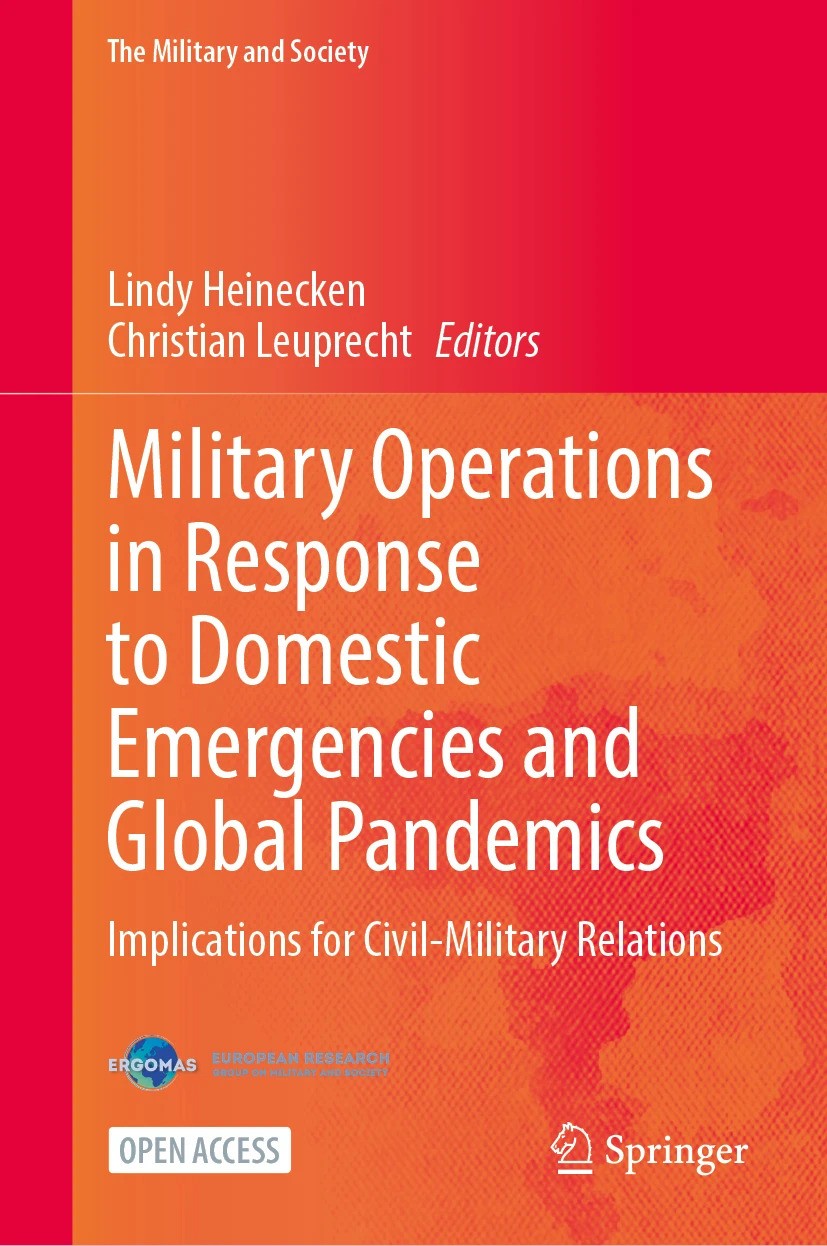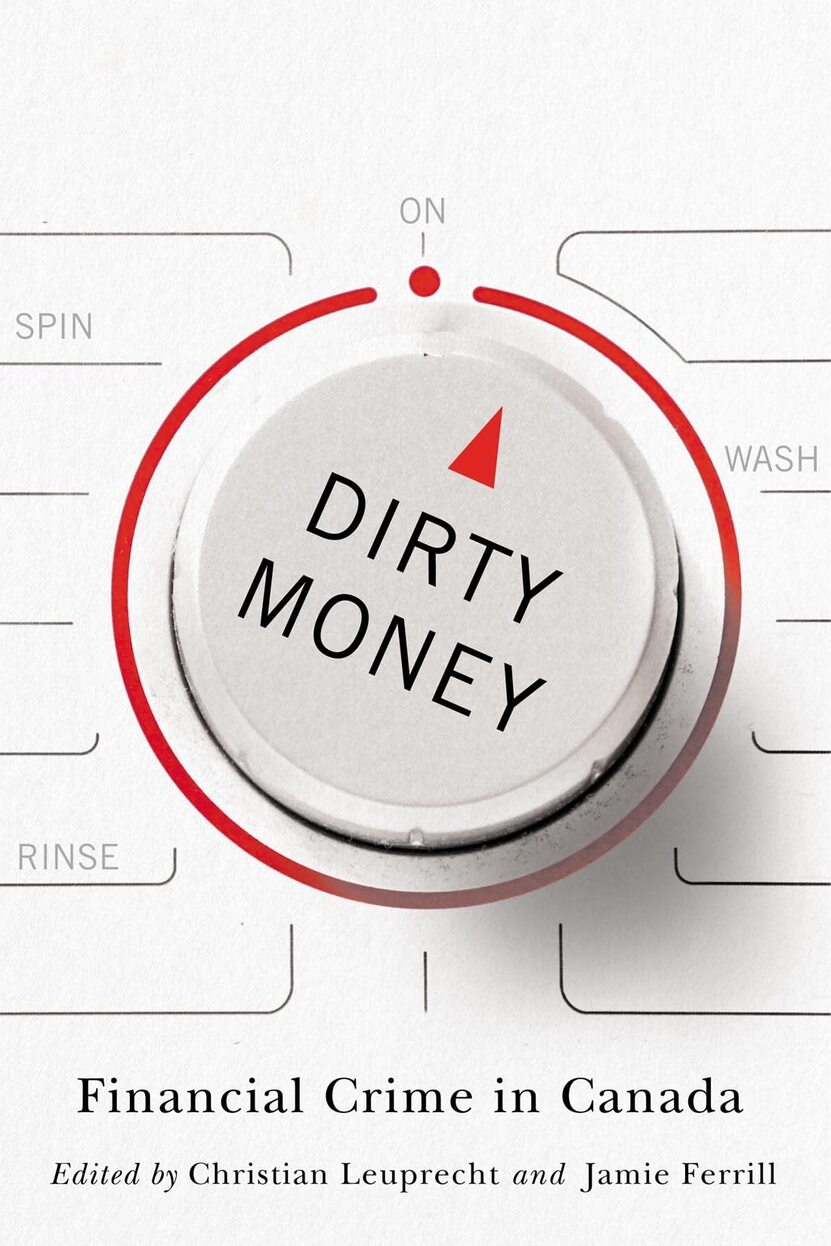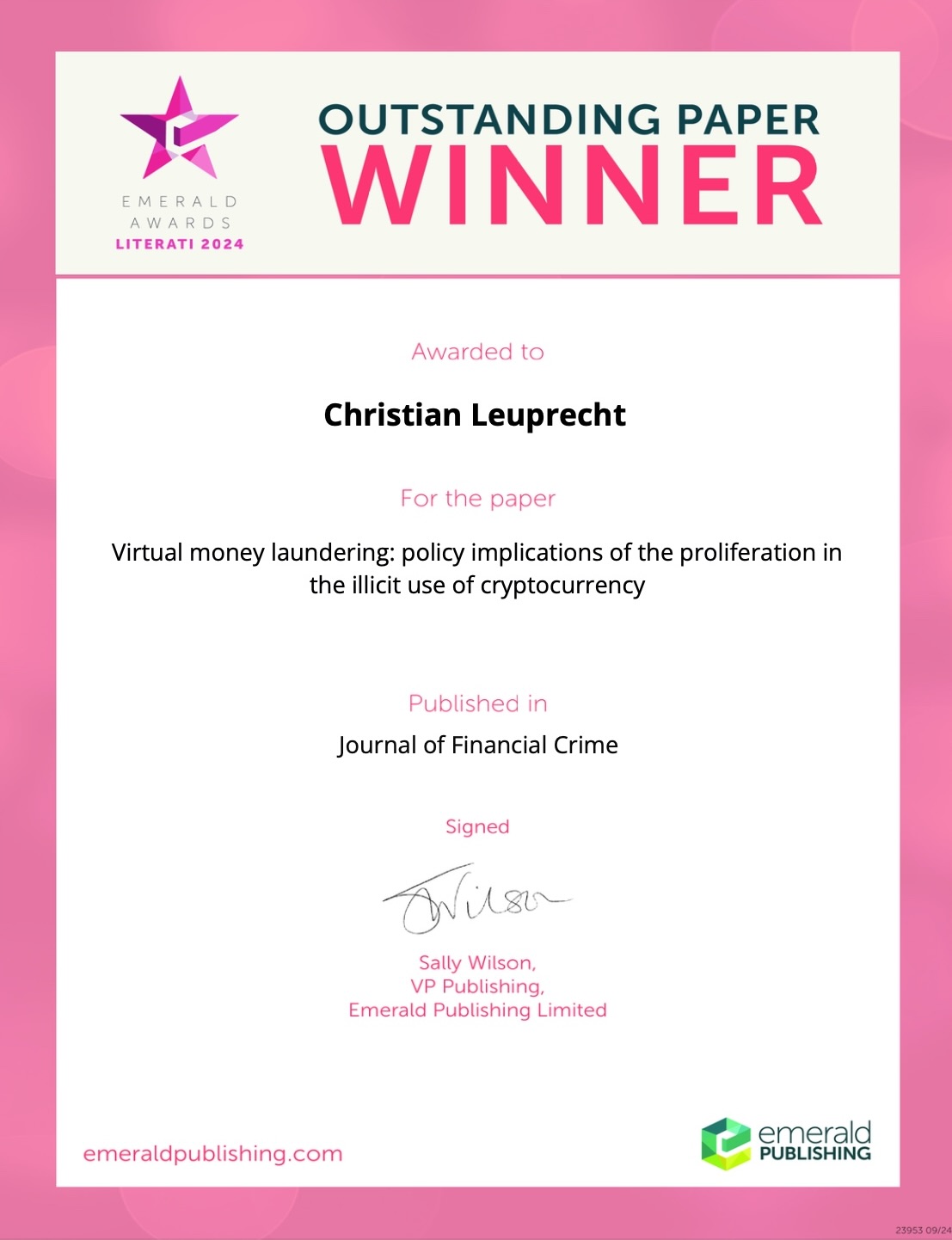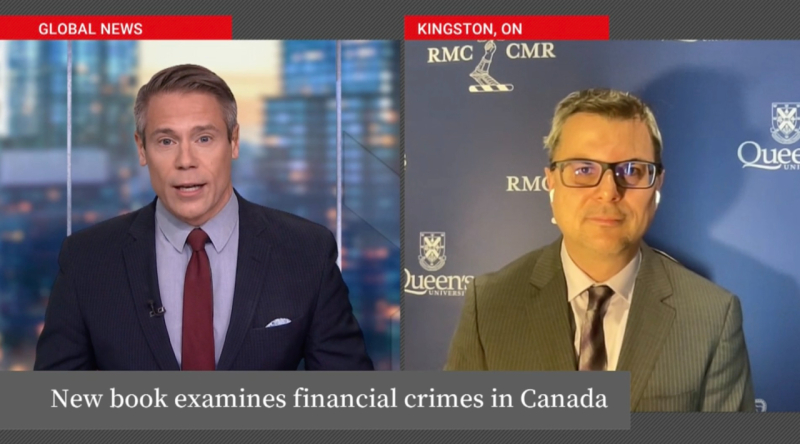Professor Christian Leuprecht
Hon. B.A., D.É.A., M.A., M.A., Ph.D. (Queen's)
%20(1)_0.jpg)
Dr. Christian Leuprecht is a Distinguished Professor at the Royal Military College of Canada and Editor-in-Chief of the Canadian Military Journal. Recent books include Military Operations in Response to Domestic Operations and Global Pandemics: Implications for Civil-Military Relations (Springer, 2025), Dirty Money: Financial Crime in Canada (McGill-Queen’s University Press, 2023), Security. Cooperation. Governance. The Canada-United States Open Border Paradox (University of Michigan Press, 2023), Patterns in Border Security: Regional Comparisons (Routledge, 2023), Polar Cousins: Comparing Antarctic and Arctic Geostrategic Futures (University of Calgary Press, 2022), and Intelligence as Democratic Statecraft (Oxford University Press, 2021). He is a senior fellow at the Macdonald Laurier Institute, director of the Institute of Intergovernmental Relations in the School of Policy Studies at Queen’s University and is an Adjunct Research Professor in the Australian Graduate School of Policing and Security at Charles Sturt University. A former Bicentennial Professor in Canadian Studies at Yale University (2009-2010), Matthew Flinders Fellow at Flinders University of South Australia (2017-2018), Eisenhower Fellow at the NATO Defence College (2019), Fulbright Research Chair in Canada–US Relations at John Hopkins University’s School for Advanced International Studies (2020), and at the Wilfried Martens Centre for European Studies (2025) in Brussels, he is an elected member of the College of New Scholars of the Royal Society of Canada, recipient of the Cowan Prize for Excellence in Research at the Royal Military College of Canada and past president of the International Sociological Association’s Research Committee 01: Armed Forces and Conflict Resolution. He holds Ontario provincial appointments as chair of the Ontario Research Fund Advisory Board and to the Kingston Police Services Board; as well as to the scientific advisory board of the World Customs Organization, the UK’s Polar Institute and the OneSocietyNetwork. He is series editor of the long-standing Canada: State of the Federation series, published by McGill-Queen’s University Press and section co-editor of Oxford University Press Intersections: Borders.
Expertise
Arctic Security, Borders, Canada-US relations: Continental Security and NORAD, Cyber Security, Defence, Federalism, Financial and Economic Crime, Intelligence and National Security, NATO and Transatlantic Relations, Policing and Police Governance, Political Demography, Terrorism, Radicalization and Extremism, Transnational Organized Crime.
Recent Books
Recent Articles
Recent Chapters
Podcasts and Webinars
Featured Recent Books Include
Winner of Outstanding Paper from the Emerald Awards Literati 2024
Virtual money laundering: policy implications of the proliferation in the illicit use of cryptocurrency
Purpose: This study aims to explain how cryptocurrency is leveraged for illicit purposes across the global financial system. Specifically, it establishes how cryptocurrency has been changing the nature of transnational and domestic money laundering (ML). It then assesses the effectiveness of conventional anti-money laundering (AML) policy and legislation against the proliferation of crypto laundering, using Canada as a critical case study.
Listen Now: New Fashioned Laundry: Cryptocurrency and the proceeds of crime
"Does Cryptocurrency change how we should understand money laundering? Dr. Christian Leuprecht, Caitlyn Jenkins and Rhianna Hamilton join us to discuss their recent paper “Virtual money laundering: policy implications of the proliferation in the illicit use of cryptocurrency" Vanessa Henri answers the question can lawyers say whatever they want?"
Department of Political Science and Economics
Royal Military College of Canada
P.O.Box 17000, Station Forces
Kingston, Ontario, Canada
K7K 7B4
613-541-6000 ext. 6428
613-541-6733 (fax)
Contact By Email
Institute of Intergovernmental Relations
School of Policy Studies
Robert Sutherland Hall, Room 309
Queen's University
Kingston, Ontario, Canada
K7L 3N6
613-533-6633
613-533-2080 (secretary)
613-533-6868 (fax)
christian.leuprecht@queensu.ca





